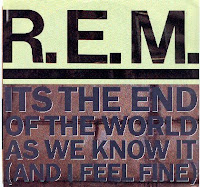question of the moment: Philemon
 Philemon is a divisive book for a lot of people. Some see Paul acting powerfully to invert the master/slave distinction while others find a Paul that demurs calling the unjust structure to account. Central to the debate is Paul's eschatology: was he convinced that the return of Christ was so near that changing societal structures was not the most urgent thing to address, or was he blind to the extent of this injustice? Was Paul's restrained mention of his apostolic position a polite first ask to Philemon? Would he have lowered the boom if Onesimus was not freed?
Philemon is a divisive book for a lot of people. Some see Paul acting powerfully to invert the master/slave distinction while others find a Paul that demurs calling the unjust structure to account. Central to the debate is Paul's eschatology: was he convinced that the return of Christ was so near that changing societal structures was not the most urgent thing to address, or was he blind to the extent of this injustice? Was Paul's restrained mention of his apostolic position a polite first ask to Philemon? Would he have lowered the boom if Onesimus was not freed?And some somewhat related question for the social sciences:
What are the common effects of an immanent eschatology in communities? I wonder what traits are shared by communities of different religions that believe the end is near. Are there common traits? It would be interesting to know how Paul's own theology and practice might reflect the same things.


Comments
Post a Comment
I cherish your comments, but not vileness or wickedness. By vileness I mean Spam, and wickedness I mean hateful speech. Unless it's about spam.